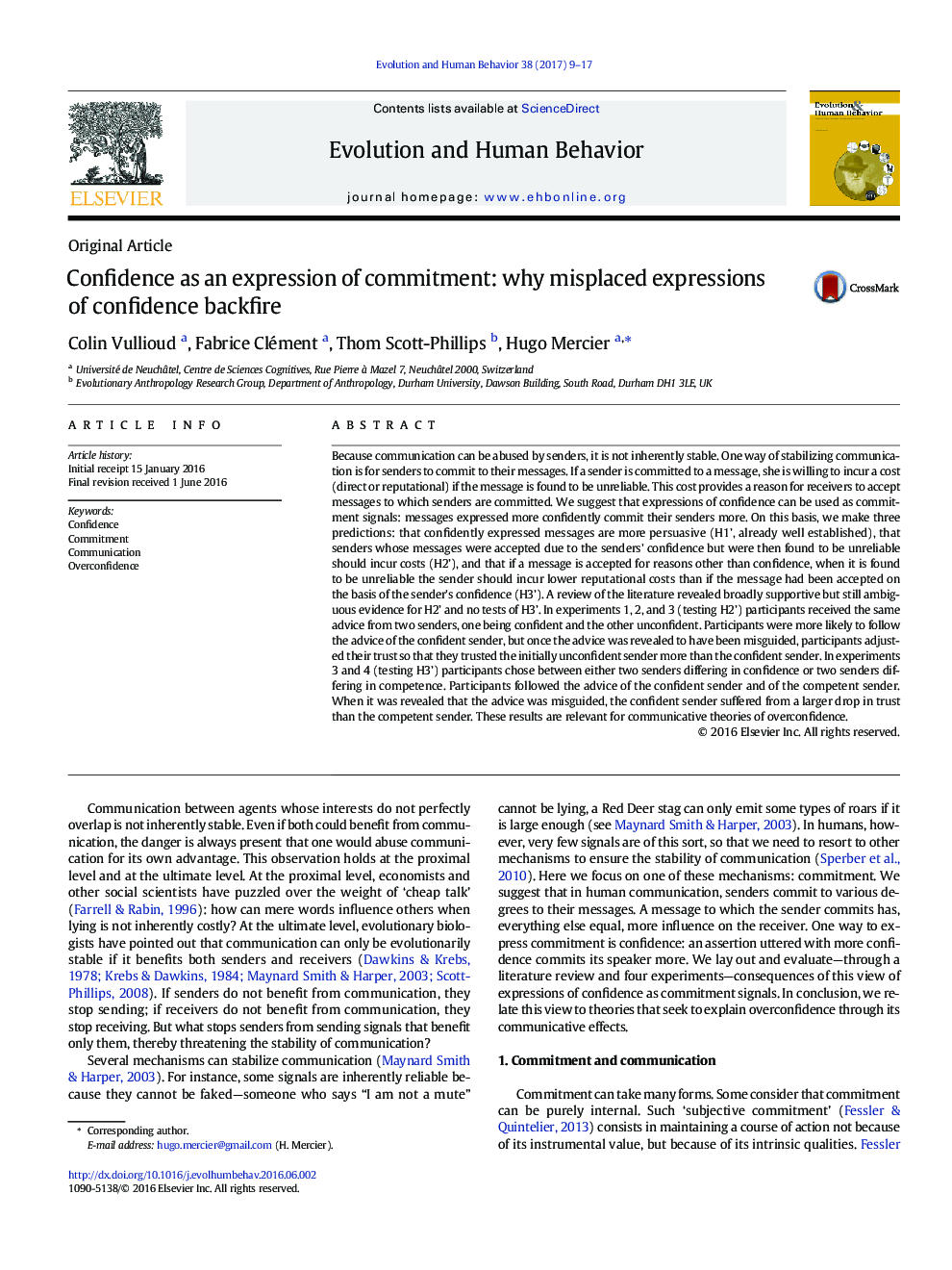| کد مقاله | کد نشریه | سال انتشار | مقاله انگلیسی | نسخه تمام متن |
|---|---|---|---|---|
| 5044844 | 1370636 | 2017 | 9 صفحه PDF | دانلود رایگان |
Because communication can be abused by senders, it is not inherently stable. One way of stabilizing communication is for senders to commit to their messages. If a sender is committed to a message, she is willing to incur a cost (direct or reputational) if the message is found to be unreliable. This cost provides a reason for receivers to accept messages to which senders are committed. We suggest that expressions of confidence can be used as commitment signals: messages expressed more confidently commit their senders more. On this basis, we make three predictions: that confidently expressed messages are more persuasive (H1', already well established), that senders whose messages were accepted due to the senders' confidence but were then found to be unreliable should incur costs (H2'), and that if a message is accepted for reasons other than confidence, when it is found to be unreliable the sender should incur lower reputational costs than if the message had been accepted on the basis of the sender's confidence (H3'). A review of the literature revealed broadly supportive but still ambiguous evidence for H2' and no tests of H3'. In experiments 1, 2, and 3 (testing H2') participants received the same advice from two senders, one being confident and the other unconfident. Participants were more likely to follow the advice of the confident sender, but once the advice was revealed to have been misguided, participants adjusted their trust so that they trusted the initially unconfident sender more than the confident sender. In experiments 3 and 4 (testing H3') participants chose between either two senders differing in confidence or two senders differing in competence. Participants followed the advice of the confident sender and of the competent sender. When it was revealed that the advice was misguided, the confident sender suffered from a larger drop in trust than the competent sender. These results are relevant for communicative theories of overconfidence.
Journal: Evolution and Human Behavior - Volume 38, Issue 1, January 2017, Pages 9-17
